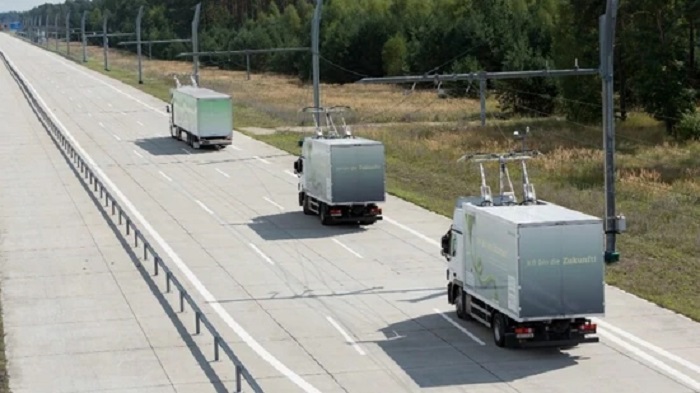
In its latest outlook, the International Energy Agency (IAE) said that world governments ought to do more to meet climate goals with policies that favour electric vehicles, and India’s proposed electric highway project is expected to be a substantial step in that direction.
The central government is mulling over the concept of an ‘electric highway’, to be built between the national capital of Delhi and Jaipur in Rajasthan. Union minister of road transport and highways Nitin Gadkari said on Friday said the government is already in talks with a foreign company to build the electric highway – his “dream” project – between these two cities and that the construction work might start very soon if the discussions come through. Hindustan Times’ sister publication HT Auto reports that in addition to the Delhi-Jaipur stretch, another electric highway may also be constructed between Delhi and Mumbai, and talks are on with a Swedish firm regarding that.
What is an ‘electric highway’?
With the world moving on from conventional fuels to alternative sources of energy for powering transport, electricity is currently the most popular choice for powering motors of propulsion in vehicles. If the proposed electric highway comes through, it will see vehicles powered by electricity ply on the stretch – the first of these will be between Delhi to Jaipur; and later, if everything goes well, the Delhi-Mumbai stretch may see another of these electric highways.
According to Union minister Nitin Gadkari, electric vehicles are not just limited to small road vehicles. Buses, trucks, and railway engines may also eventually be powered by electricity. The minister said that it was his dream to build an electric highway, but the project is still in the proposal stage.
“It is my dream to build an electric highway from Delhi to Jaipur,” the PTI news agency quoted Gadkari as saying. “It is still a proposed project. We are in discussion with a foreign company.”
He said that as the transport minister, he has taken the resolution to eventually bring an end to the use of petrol and diesel in the country.
Electric vehicles, the future of transportation
An electric vehicle (EV) uses one or more electric motors for propulsion and can be powered either by an electric current collector system (for example, the overhead lines or electric third rails powering trams or electric locomotives), a battery (can be charged by solar panels or by converting fuel to electricity using fuel cells or a generator), and any other extravehicular sources of power.
Because of the diverse range of options available, EVs are not limited to road vehicles; electricity can theoretically power the railway, aircraft, spacecraft, and even underwater vessels. It has also been described as one of the 100 best contemporary solutions to address climate change and is expected to reduce conventional transportation’s drastic impact on global warming and the environment.
In its latest outlook, the International Energy Agency (IAE) said this year that world governments should do more to meet climate goals with policies that favour electric vehicles, and India’s proposed electric highway project is expected to be a substantial step in that direction. (Hindustan Times)